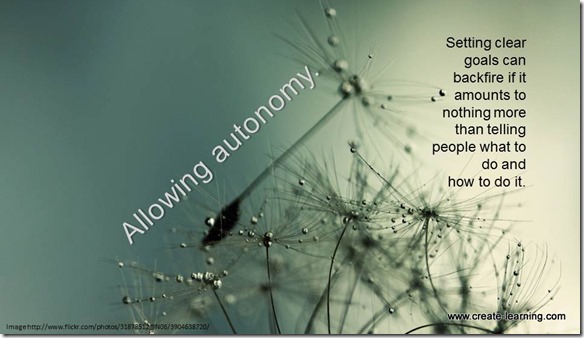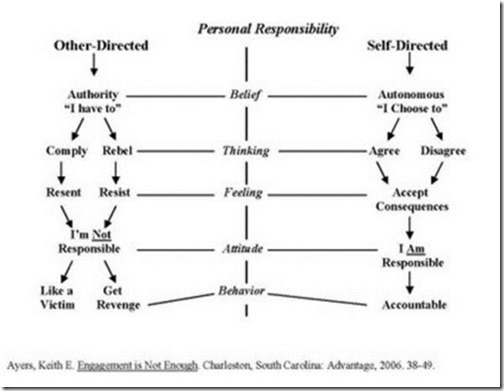Autonomy within work: A degree or level of freedom and discretion allowed to an employee over his or her job. As a general rule, jobs with high degree of autonomy engender a sense of responsibility and greater job satisfaction in the employee(s). Not every employee, however, prefers a job with high degree of responsibility. (Sourced)
Attending a workshop with the Organization Development Network of Western NY. Dr. Tesluk shared some research about how millennials have a greater desire for autonomy compared to other generations.
This made me think – What would cause an adult to desire no autonomy over their work?
Synonyms for autonomy are ‘dependence’ or ‘other directed’.
When people become dependent or act as-if they are being other directed this does not happen by accident. They have entered a system that is causing this behavior. That system is generally trust repelling & has a direct manager-employee connection that is a bad fit. The person who is now dependent may be seen as being resistant or even become apathetic. These behavioral indicator rarely happen in trust attracting organizations.
Systems-Drive-Behavior
It only takes once or twice for someone to mention a different or off beat way to do their work & their direct manager or workmates tell them that their ideas are not welcome, to get back to work & they don’t know what their talking about.
A dependent system changes behavior to people who just want to be told what to do, so they can do it. If things go wrong – it is not their fault because they were just doing what they were told. If thing go well – it is not their fault because they were just doing what they were told.
If employees feel that they are being micro-managed the engagement will be sucked out like a rapidly deflating balloon. This creates an “I just do what I’m told, if anything goes wrong, it’s not my fault” behavior.
Autonomy happens through increased choices of how to complete the work not necessarily changing the goal / task to be accomplished. People have to have control over how they complete the expected goal … these choices show trust in the person & organization.



